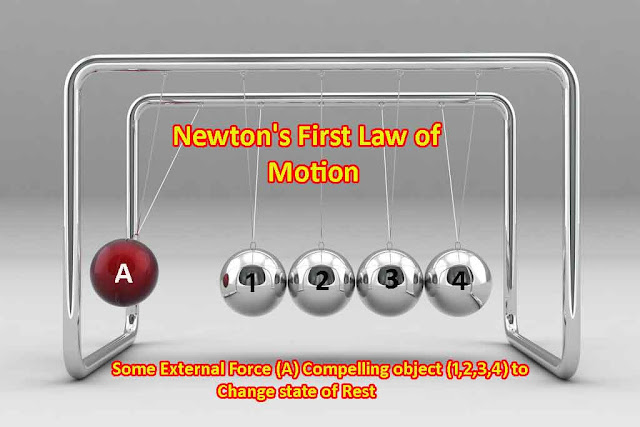The term acceleration is a part of mechanics. Mechanics is the branch of physics that deals with the condition of rest or motion of material objects around us. It is one of the oldest branches of physics.The various sub-branches of mechanics in physics are:
- Static-Study of objects at rest or equilibrium.
- Kinematics- Deals with the motion of objects without considering the cause of motion.
- Dynamics- Deals with the motion of objects considering the cause of motion.
Our Today discussion about the Kinematics. Lets start
What Does Acceleration Mean?
When moving object changes its velocity (speed in given direction), we use the term in Physics saying that body is accelerating.
Object Changes Velocity = Accelerating
Question- A car is travelling in a straight line at a constant velocity of 80 kilometres an hour. What is its acceleration?Answer- It is zero. It is because velocity is constant.There is no change in velocity.
Question- A plane is travelling in a straight line at a constant speed of 1000 kilometres an hour. What is its acc.(a)?
Answer - Zero, It is Because it is at a constant speed in a given direction.
| When velocity changes there will be acceleration. |
- It is a vector quantity (Magnitude as well as direction).
- It has the same direction as that of the change in velocity.
- The SI unit of is: ms-2.
- The CGS unit is cms-2.
- The dimensional formula is (M0L1T- 2).
Read:
Law of Inertia.
Acceleration Definition
The rate of change of velocity of an object with time.
Acceleration Formula
It tells how fast the velocity of an object change with time.
How To Find Acceleration
Question- A School bus running on the road with an initial speed of 80km/h. On seeing the speed breaker, bus driver suddenly applies the brake such that the final speed of the bus is 60km/h in 5 seconds. Calculate the value of a?

Negative Acceleration
If the velocity of an object decreases with time, its a = -ve. Negative acceleration is also called retardation or deceleration. When a bus slows down on approaching a bus-stop, its acc.(a = -ve (negative)).
Postive Acceleration
If the velocity of an object increases with time, it's a = +ve (positive). When a bus leaves a bus-stop, its acc.(a = +ve (positive)).
What is Acceleration?
Uniform - An object is said to be uniform acceleration if its velocity changes by equal amounts in equal intervals of time, however small these time intervals may be.
(Non-Uniform) Variable - An object is said to be variable acceleration if its velocity changes by unequal amounts in equal intervals of time.
| When the only direction of velocity changes | When the only magnitude of velocity changes | When both magnitude and direction of velocity changes |
| Acc. is perpendicular to velocity | Acc. is parallel or anti-parallel to the velocity. | Acc. has two components one is perpendicular to velocity and another parallel or anti-parallel to velocity |
| e.g. Uniform circular motion | e.g. Motion under gravity | e.g. Projectile motion |
How to Calculate Acceleration?- Examples
Q- A train starting from Railway Station attains a speed of 21 m/s in one minute.
Q- A motorcyclist starts at rest and reaches a speed of 6 m/s after travelling uniform for 3 s. What is his a?Q- A ball hits a wall horizontally at 6.0ms-1. It rebounds horizontally at 4.4ms-1. The ball is in contact with the wall for 0.040 s. What is the acc. of the ball?How to Find Average Acceleration?
For an object moving with variable velocity, the average acc. is defined as the ratio of the total change in velocity of the object to the total time interval taken. Suppose v1, and v2 are the velocities of an object at times t1 and t2 respectively. Then its average acc. is-
Average Acceleration Formula
Difference Between Velocity and Acceleration
| Velocity | Acceleration |
| Change In speed in a given direction per unit time. | Change of velocity in a given per unit time |
| It's S.I unit is ms-1. | S.I unit is ms-2. |
| Dimensional Formula is M0L1T-1. | Dimensional Formula is M0L1T- 2. |
| Its Formula is- Change In Displacement / Time | Formula is- Change In Velocity/time. |
| It can also be zero, positive and negative. | It can be zero, positive and, negative. Negative acc. also called Retardation. |
This is all about the basics of what does Acceleration Mean, Formula, Find, Examples.











Comments
Post a Comment